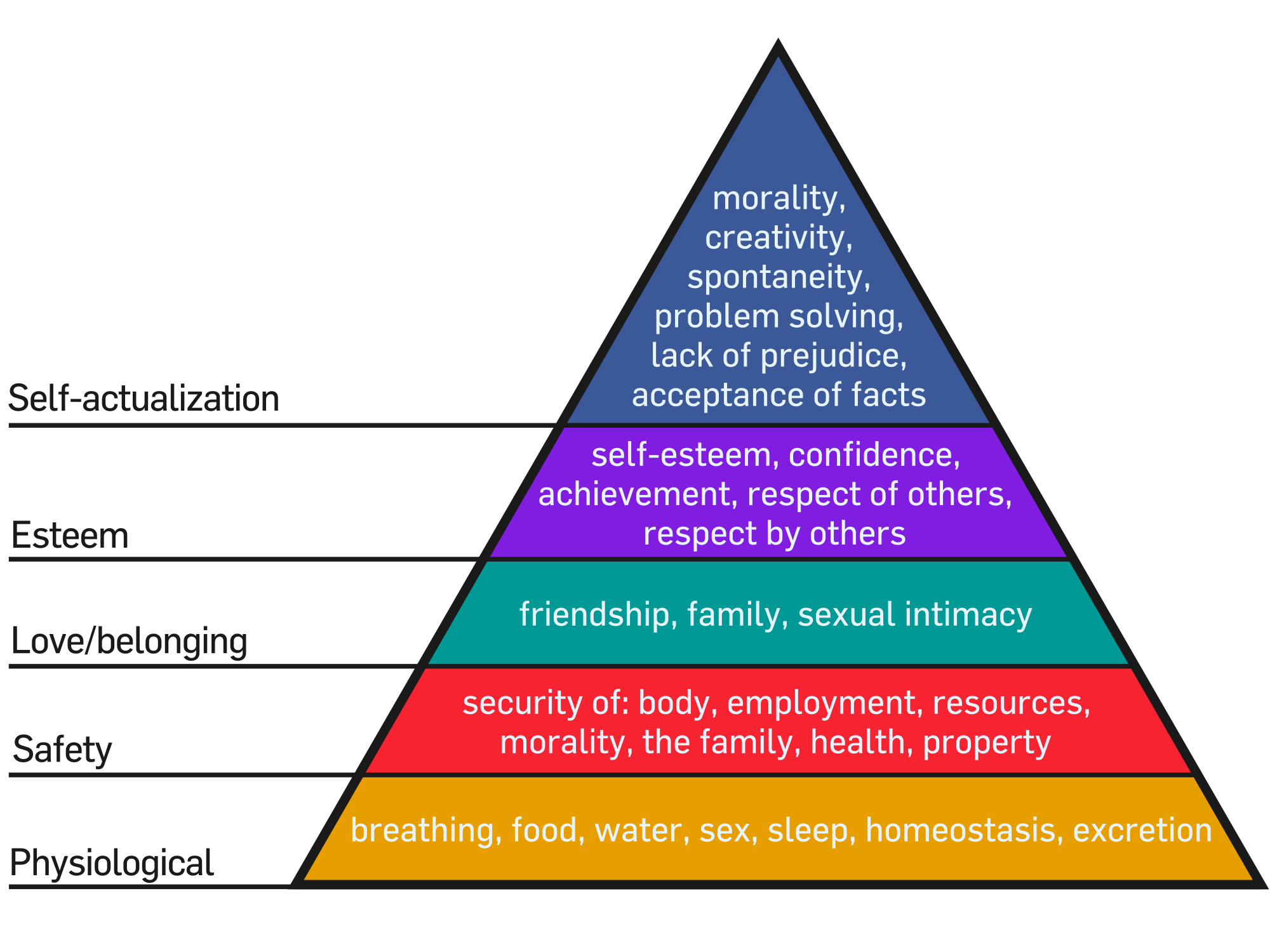Lesson 2: Psychosocial Causes of Abnormal Behaviour
Hierarchy of Needs
One of Abraham Maslow’s most famous contributions to psychology was his hierarchy of human needs. Maslow believed that people needed to satisfy certain levels of needs in a certain order if they were to become the best people they could be.
The lower needs on his hierarchy are concerned mainly with physiological needs. The higher needs are associated with emotional states: happiness, peace of mind, and a rich inner life. Maslow believed that, before a person could move to a higher state, all the lower needs must be met. He also believed that the higher needs can be attained only in later life. Maslow’s hierarchy is illustrated in Figure 4.1
Figure 4.1: Hierarchy of Human Needs.

Physiological needs
Physiological needs are directly related to human survival. They include food, water, sex, and sleep. Maslow believed that if these needs were not properly met, a person would spend his or her life obsessed with them and would be unable to move to any higher stage in life. For example, if a woman is starving, she must spend all her time and energy finding enough food to keep her alive; she would have little opportunity to think about anything else.
Safety needs
After the physiological needs are met, safety needs become important. They include establishing structure, order, and predictability in one’s life. These needs are related to feeling settled. For example, an unemployed person will constantly look for a stable job and a permanent place to live. He or she will be unable to focus on anything else until these needs are met.
Belongingness and love needs
At this stage a person desires companionship, a supportive family life and an intimate relationship. Maslow believed that if these needs were not met, a person would be consumed by loneliness and have no sense of belonging.
Esteem needs
The esteem needs include acceptance and recognition from other people as well as from oneself. This recognition boosts a person’s feelings of value and self-worth.
Self-actualization
Self-actualization is the highest level on Maslow’s hierarchy. Maslow believed that very few people actually ever attain this level. Self-actualization is characterized by a full acceptance and knowledge of one’s self and one’s own destiny.
People with realistic views often set realistic goals they can attain with their motivational levels and lifestyles. Maladjusted people tend to have unrealistic goals (too high or too low) that often end in failure or lack of fulfillment. Other problems with motivation may involve other people. One person may be motivated to control the actions of his or her spouse, but without a submissive partner, this motivation will not be realized. Motivation can change, however, and bring us closer to or farther from unhealthy behaviour!
Video: Maslow's Hierarchy of Human Needs